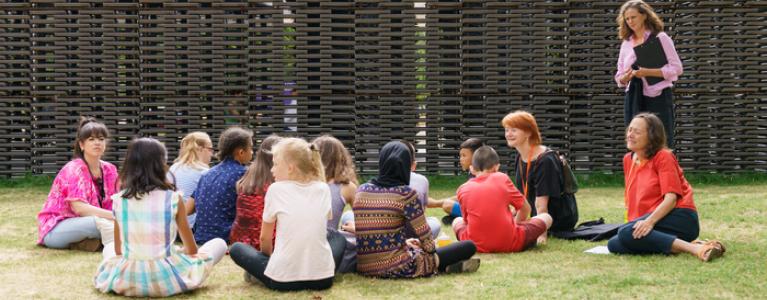
Social Integration Design Lab
Seventeen projects from across London have been selected to take part in our first ever Social Integration Design Lab. This is a key commitment from the Mayor in his social integration strategy.
Social integration is about how we all live together. It is the extent to which we positively interact and connect with others from different backgrounds.
Improving social integration means helping Londoners to build relationships with each other. It involves supporting them to be active in their communities and to play a part in the decisions that affect them. It also means reducing barriers and inequalities, so that Londoners can relate to each other as equals. This will create stronger communities and will give us a renewed sense that we are united as neighbours and as Londoners.
The Lab will support local authority officers to work with social design experts, public sector innovators and Londoners to embed social integration and design principles into public service delivery, projects and policies. It will bring together local authorities that wish to lead innovative practices which promote social integration in their local area and provide a stimulating space to design, test and share interventions that support a more socially integrated London.
The focus for the Lab’s first year is supporting regeneration projects of different sizes, from community spaces and high streets, to infrastructure projects and wider opportunity areas. It will offer tailored support and group sessions to help participants to embed social integration and design principles into how they deliver regeneration projects.
The Lab was launched at an Open Day at City Hall in January 2019. Following the Open Day, London local authorities had the opportunity to submit Expressions of Interest to participate in the first year of the programme. Applications were based on specific regeneration projects or assets that local authorities wish to better embed social integration outcomes into.
The projects selected to participate in the Lab are:
- Church End & Neasden Masterplan, with a focus on a set of community spaces (Brent)
- New ‘neighbourhoods approach’ to delivering community hubs, to be piloted in Kentish Town (Camden)
- High Street Development Plan for Thornton Heath, with a focus on new community events space (Croydon)
- Joyce Avenue and Snells Park Estates, engaging residents in the lead up to an estate ballot (Enfield)
- Woolwich Town Centre, with a focus on the Waterfront Leisure Centre (Greenwich)
- Ridley Road public realm and infrastructure improvement scheme (Hackney)
- Development of community investment programme, with a focus on the re-provision of primary schools in new mixed-use developments (Hammersmith & Fulham)
- Broadwater Farm, with a focus on developing a stakeholder or residents panel to guide the future of the estate (Haringey)
- Feltham Green and Pond improvements, central to Feltham Town Centre and Feltham Housing Zone (Hounslow)
- Finsbury Park Town Centre – Accessibility Improvement Project (Islington)
- Kingston Town Centre Streets & Spaces Strategy projects, supporting the wider Town Centre Vision (Kingston-upon-Thames)
- Larkhall Park and its surrounding social amenities to help inform a future Stockwell Masterplan (Lambeth)
- Custom House Centre regeneration scheme delivering new homes, local retail and a community health centre (Newham)
- Delivery of five new community hub across the borough, and a new civic centre in Illford (Redbridge)
- Social Regeneration Charter for Old Kent Road, with focus on a new community hub to bring people together (Southwark)
- Design Guide for High Density Living, testing design principles on two or three sites across the borough (Tower Hamlets)
- Shaping the future of South Leytonstone through cultural led change (Waltham Forest)
These projects are in the process of being delivered, mostly in early stages, which ensures that learning from the Lab can be applied to the projects in a meaningful way. A key aim of the Lab is for each participating project to become a best-practice example of designing regeneration projects for social integration, and to inform a set of social integration design principles that can be used by others.
Later this year, a showcase event will be held to share learning from the Lab.